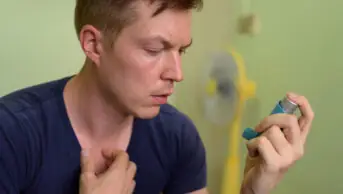Science is in crisis, but that may be a good thing. Despite highly educated experts who have spent years meticulously researching climate change and vaccines reaching indisputable consensus — climate change is real and vaccines do not cause autism — skepticism of science remains high. President Donald Trump is adding fuel to the fire by filling his cabinet with individuals who deny climate change, and, in August 2016, Trump entertained the world’s most famous vaccine opponent, Andrew Wakefield, at a fundraiser. These events have created a sense of fear among scientists as they scramble to protect their findings from potential threats from the new administration. The good news is that these events are mobilising scientists in greater numbers to stand up for scientific progress.
Vaccines are an area of medical progress that has been under attack for years, especially by Wakefield who was lead author on a study that made several claims, including a connection between autism and the measles, mumps, and rubella vaccine. The study was later retracted, and Wakefield’s licence to practise medicine in the UK was revoked, because several of the claims were proven false and the study was unethical in its methods. Yet, this study remains a pillar of the anti-vaccine movement. Continuing anti-vaccine rhetoric scares parents and has led to an increase in the number of requests for personal exemptions from vaccination in the United States. Reduced levels of vaccination likely spurred the shocking 10-fold rise in mumps cases in the US between 2011 and 2016. Physicians must take a stand. They need to tell the stories of these outbreaks, remind parents of the risk they take with their children by choosing not to vaccinate, and emphasise the proven safety of vaccines.
The meeting between Wakefield and Trump foreshadows the potential future threat to vaccination by the incoming administration, but should come as no surprise to those who have followed the US election. Trump made numerous comments during his campaign about the dangers of vaccines, and it seems he did not need Wakefield to convince him of the false connection between vaccines and autism. Trump repeatedly told a story during his campaign about the seeming overnight change in a two year-old child who received vaccines. Trump has also claimed “When I was growing up, autism wasn’t really a factor. And now all of a sudden it’s an epidemic.” While Trump may think he has the scientific credentials to determine the cause of the rise in the number of autism diagnoses, he is wrong. Scientists studying it have yet to discover what causes autism. What scientists do agree on is that vaccines are not the cause. This is a viewpoint shared by one of the largest autism foundations, Autism Speaks, and the Centers for Disease Control and Prevention.
Parents of autistic children want to know why their children, and so many others, have autism. We cannot fault them for their passion to find the cause. However, by peddling fear and skepticism about vaccines, Wakefield and Trump validate parent requests for vaccine exemptions and marginalise the importance of vaccines. In the end, it is the children who will suffer unnecessary vaccine-preventable illnesses. An unfortunate side effect of continued belief in the connection between vaccines and autism is scientific distraction. The scientific community feels compelled to continue studies in this area when more progress would be made by unbiased studies designed to determine what is actually responsible for autism.
To be sure, there is sketchy science published every day. In a hypercompetitive field like science, there will always be some individuals who cut corners and exaggerate their findings to promote their own careers. Americans have enough trouble determining real from fake news, and more than half of Americans who support Trump believe he is more credible than that media outlets such as CNN and the New York Times. How are these non-scientists supposed to determine good science from bad?
Scientists and physicians are the answer. With the very essence of the scientific enterprise under attack, there is an opportunity to unite. Activism and public engagement must become part of the everyday work of scientists and physicians. We must use our critical analysis skills to determine the quality of scientific studies, and use our credibility to communicate the findings to patients and society. Training in how to speak with the media, and to write for lay audiences, is desperately needed. Apathy is no longer an option. Such apathy will allow the scientific and medical progress we have worked so hard for to slow, or worse yet, slide backwards. In the case of vaccines, this will leave an entire generation susceptible to completely preventable diseases.
Cynthia Leifer, PhD is an Associate Professor of Microbiology and Immunology at Cornell University


